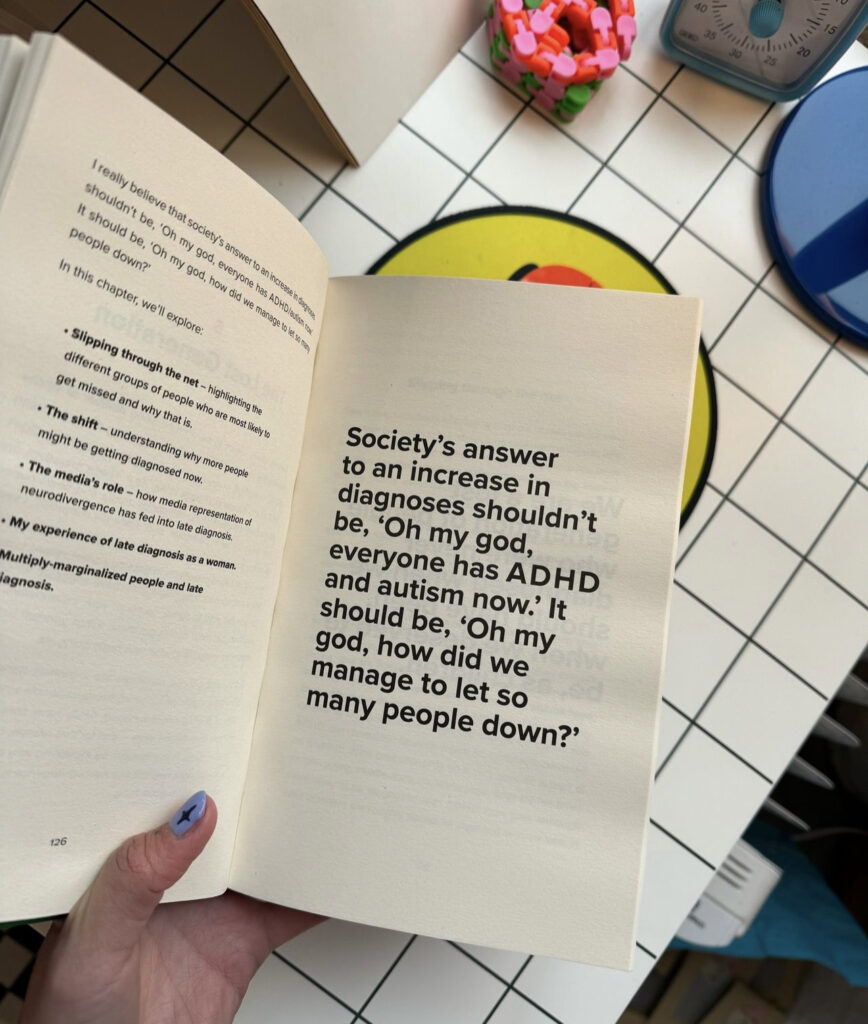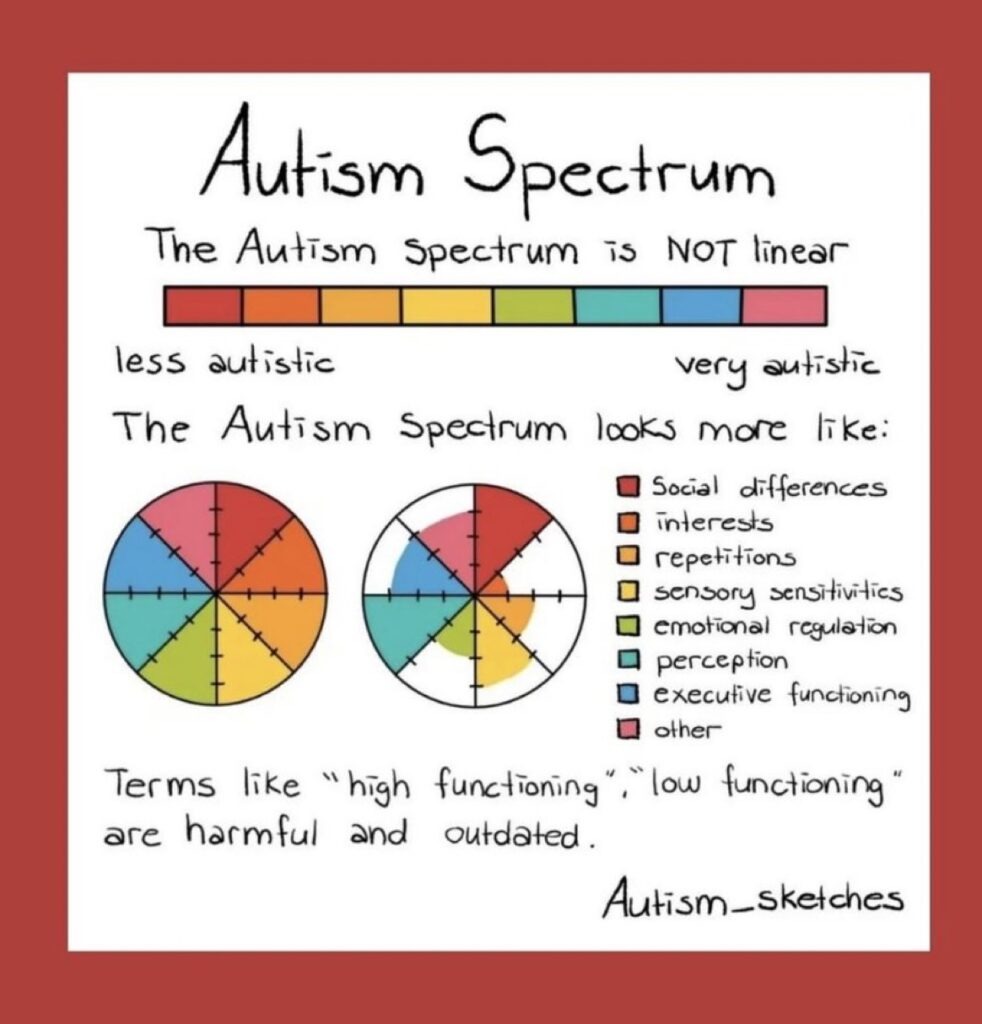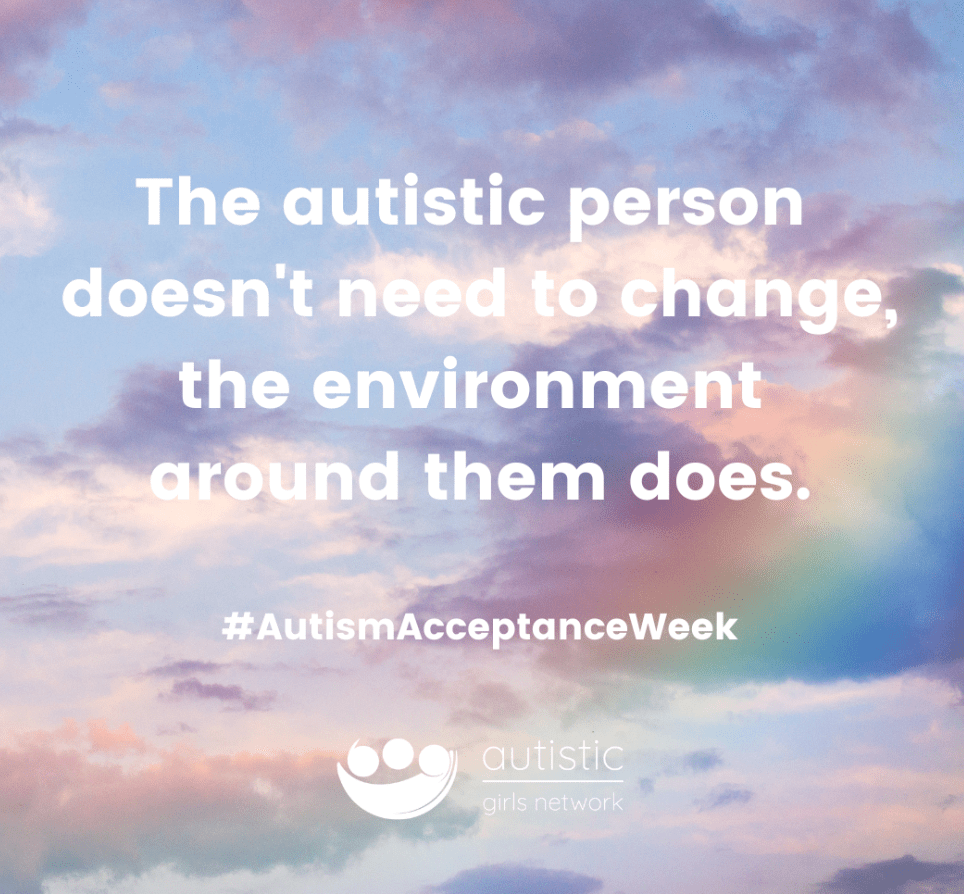#AutsimAcceptanceWeek
As part of my role at goPhysio, I often highlight key ‘awareness weeks’ that are directly related to our work and the area of musculoskeletal health, physio, Pilates & injuries.
But this week, is slightly different. This week is Autism Acceptance Week and a week that highlights a topic that has touched mine and my family’s lives in recent years very deeply.
This week is SO important, because there is still such a huge lack of understanding of what autism is and what it isn’t. It is also crucially important because one of the best ways of helping autistic people is to improve understanding of autism, increase acceptance and create a society that works for autistic adults, children and their families.
So, to start here are a few bits of key information about autism (Source: Autism Hampshire).
What is autism?
- Autism is a lifelong developmental disability that affects how people communicate / interact with others and see the world around them; autistic people have said that the world, to them, is a mass of people, places and events which they struggle to make sense of, and which can cause them considerable anxiety.
- It is estimated that around 1.76% of the UK population are autistic. Although with increasing awareness and more awareness about how autism presents, particularly in girls, it is likely that this figure is significantly higher.
- Like everyone, autistic people have their own strengths and weaknesses. However, many autistic people share and experience particular difficulties with social interaction / social communication, repetitive and restrictive behaviours, over- and under-sensitivity relating to the senses, highly focused interests or hobbies, poor mental health, meltdowns and shutdowns.
- Autism is not a mental health condition, but 80% of autistic people experience poor mental health, are 9 times more likely to commit suicide, report significant social isolation and often suffer from high anxiety and low self-esteem.
- Understanding and relating to other people and taking part in everyday situations may be harder for autistic people. Other people appear to know, intuitively, how to communicate and interact with each other, and some autistic people may wonder why they are ‘different’.
- In educational settings, autistic students are three times more likely to be excluded from school; only 22% of autistic adults are in paid, full-time work.
- Autism is not a learning disability; only 40% of autistic people have a learning disability.
- Autism is not a disease and it cannot be ‘cured’.
Our Story & Experience

After a 4 year struggle, with an array of issues that came like a bolt out of the blue for our family, we finally got an autism diagnosis. Having this diagnosis has been incredibly helpful for us. It has enabled us to gain greater understanding and acceptance of what autism is and what we need to do in order to create an environment that enables an autistic young person to thrive.
We have dedicated a lot of time to learning about autism, attending support groups and I have trained to be an Autism Ambassador through the National Autistic Society. We have experienced first hand how much of a difference it can make, having this understanding and acceptance and this is what needs to happen in our society.
Along our journey, I repeatedly hear the same comments, questions and misconceptions being raised. These often come from a place of understandable unawareness or lack of knowledge. So, I’d like to use this opportunity to discuss these a little more and share our experience and some information about theses 7 key areas from what we’ve learnt to date.
1. Everyone’s getting diagnosed, everywhere you look!

There has definitely been an increase in awareness and high profile people sharing their autistic diagnoses. There have been a lot of news articles, social media campaigns and TV documentaries recently. This is a great thing, it is breaking down the barriers and provides opportunity for discussion and increasing awareness. I often find that people say “everyone’s jumping on the diagnosis bandwagon” but the reason it appears like more people are being diagnosed is because awareness and understanding is increasing and more people are sharing their stories and experiences. This is particularly true of females and older males. Historically, younger boys with the more obvious signs of autism were more easily identified and diagnosed. It is only in more recent years that the less obvious signs are being identified, which in turn has increased diagnoses.
The other element to this is that the world around us and society has become significantly more challenging, particularly to people who are autistic. Many years ago, the pace of life was slower, technology wasn’t 24 hours, our world was smaller and we often had more routine and structure and less unpredictability to our lives. With the fast pace of life we now live in, fragmented, less supportive and surrounded by 24/7 stimulation in so many forms, this in itself may be leading to more people presenting as autistic, when they wouldn’t necessarily have struggled in years gone by.
2. Why would you want a ‘label’?
This is often asked but I find that you will find labels are used anyway, particularly at school and in the workplace. Many autistic people have been labelled as quirky, difficult, strange, emotional, strong willed, defiant, a day dreamer or a whole host of other descriptive terms (not always complementary!).
So, why not have a ‘label’ that is actually helpful. The label of autism can be useful in several ways:
- Diagnosis: Receiving a diagnosis of autism can help individuals understand why they may have difficulties in certain areas, such as social interaction, communication, and sensory processing. In turn this can be reassuring.
- Support: With a diagnosis of autism, individuals can receive appropriate support and interventions that are tailored to their specific needs. This can help them to develop skills and strategies that can improve their overall functioning.
- Access to Services: A diagnosis of autism can also help individuals access services and support, such as specialised education, therapies, and community resources. This can be invaluable.
- Advocacy: The label of autism can help individuals and their families advocate for their rights and needs, and can raise awareness about autism and its impact on individuals and society.
Personally, we have found the label of autism has been useful, but it’s not necessary for everyone. Some individuals may not feel that the label accurately represents their experiences, while others may choose to focus on their strengths and abilities rather than their diagnosis. Ultimately, the decision to seek a diagnosis and use the label of autism is a personal one that should be made based on individual needs and preferences.
3. We’re all a bit autistic
NO, not everyone is “a bit autistic.” Autism is a neurodevelopmental disorder that affects individuals in a specific way, and it is diagnosed based on a specific set of criteria. While many people may exhibit some traits or behaviours that are displayed in people with autism, such as having a preference for routine or sensory sensitivities, this does not necessarily mean that they have autism. These traits may be part of their personality or simply quirks of their individual temperament. Whilst it’s true that many people may share some characteristics with autism, it’s important to recognise that autism is a distinct condition that affects individuals in a specific way.
4. You don’t look autistic
One of the best terms I’ve heard is “If you’ve met one autistic, you’ve met one autistic”. What does that mean? Just like neurotypical people, everyone is different! Autism is a complex and multifaceted condition that can present differently in different people. While some individuals with autism may have difficulty with social interaction, communication, and sensory processing, others may excel in these areas while struggling with different aspects of life. Autism is a spectrum disorder, meaning that it affects individuals in varying degrees and can present in many different ways.
There are still very strong stereotypes of what an autistic person ‘looks like’, Dustin Hoffman as Rain Man often comes up. These stereotypes are still portrayed in the media, re-enforcing what society sees a typical autistic person look and behave like, yet as you should now be seeing, there isn’t a typical autistic person.
The other thing is that autistic people will ‘mask’ so try and fit in so they don’t appear autistic, due to societal pressures. More on that next………..
5. We all ‘mask’
Masking in autism is a term used to describe when an individual with autism learns to hide or suppress their autistic traits or behaviours in order to fit in or appear “normal” in social situations. It might include mimicking social behaviour, suppressing any sensory sensitivities or stimming, and intentionally avoiding topics or situations that may trigger an autistic response.
But don’t we all mask depending on what situations we are in? Many people may engage in ‘masking’ to some extent to fit in or meet social expectations, but it’s important to recognise that masking in autism is a distinct experience that is related to specific challenges and characteristics of autism. For autistic people, it’s not as simple as acting in a different way at school, work, home or with your friends!
For an autistic person, masking can be an exhausting and stressful experience, as it requires a huge amount of mental and emotional energy to constantly monitor and adjust their behaviour to fit in. Many individuals with autism feel pressure to mask their autistic traits in order to be accepted. This can be particularly true for women and girls with autism, who may face greater societal expectations to conform to social norms and hide their differences. (Read more about masking here).
6. Autistic Girls
Autism in girls and women is significantly under diagnosed and misunderstood. As I’ve addressed above, the stereotypes about what autism looks like and how it is often presented in the media is generally male biased. Even the diagnostic criteria that is still used has been developed based on males. It is only in more recent years that how girls and women may present with autism is different to men and boys and that greater understanding is developing, that more women and girls are being diagnosed.
Autism in girls often only comes up when a girl is suffering with their mental health or they have been diagnosed with other conditions such as anxiety, OCD, eating disorders etc. or often getting to the point of burnout. It is now being suspected more that previously diagnosed mental health conditions have been misdiagnosed and the individual actually has undiagnosed autism. It is thought that 80% of autistic people also experience poor mental health, so this may be the first sign of autism. But it is really important in my opinion that autism is explored, as it can explain so much. It is great that this is finally being recognised and researched more, as the right support can then be put in place.
7. You manage OK, you must be ‘high functioning’
I’m finishing with one of my biggest frustrations. “You manage OK, you must have high functioning autism.” Autism is not a linear presentation going from low to high functioning, or not autistic to very autistic, it is a spectrum. I love this comic strip to explain the concept of this.

High and low functioning labels can be detrimental to an autistic person. Who is to say how much someone can function? Functioning ability can change on a minutely, hourly and/or daily basis. Calling someone high-functioning may add a lot of pressure to that person and them assuming they need to keep up with society and function at a pace that might not work for them.
The pressure to appear ‘high-functioning’ means that an individual feels the need to mask more and ‘fit in’ with what society on the whole expects, and as highlighted above this is detrimental.
What is ‘Neurodiversity’, ‘Neurodivergent’, ‘Neurotypical’?
Autism falls under the bracket of ‘Neurodivergent’, which falls under the umbrella of ‘Neurodiversity’. This image explains it perfectly. We are all Neurodiverse – we have different brains, we are wired differently, we behave, think and act differently!
We are not all neurodivergent though. Neurodivergence refers to someone who learns and processes information differently to what is perceived as ‘normal’. As well as autism, this includes ADHD, dyslexia, dyspraxia, and dyscalculia, among others.
Will more and more people be recognised as being neurodivergent? Probably yes, as our understanding and acknowledgement progresses. It is society that has determined what ‘normal’ is and it is the pressure to be ‘normal’ that creates such a challenge for people who are neurodivergent.
Accepting that there is neurological variation is just as important as accepting any other form of diversity.

So, what does that mean at goPhysio? I have shared my experience, knowledge and understanding with our team.This has helped improve their own understanding of autism, which in turn will help any autistic patients that we may see and also help them be more accepting and understanding of any autistic people they may interact with in their personal lives. As a business we are actively working to embrace all Neurodivergence, not only autism. This has meant we have introduced new ways of working and adjustments to many ways of working, to help support neurodivergence.
Here are some links to additional resources that I have found particularly helpful:
- Autism Acceptance Week Campaign from Autism Hampshire
- Autistic Girls Network
- National Autistic Society
- Ask About Autism
by Fiona, goPhysio Co-Founder & Director



